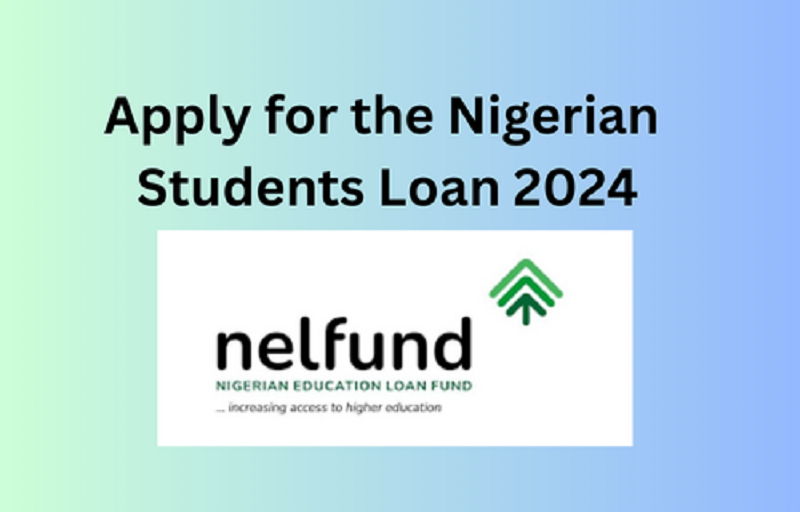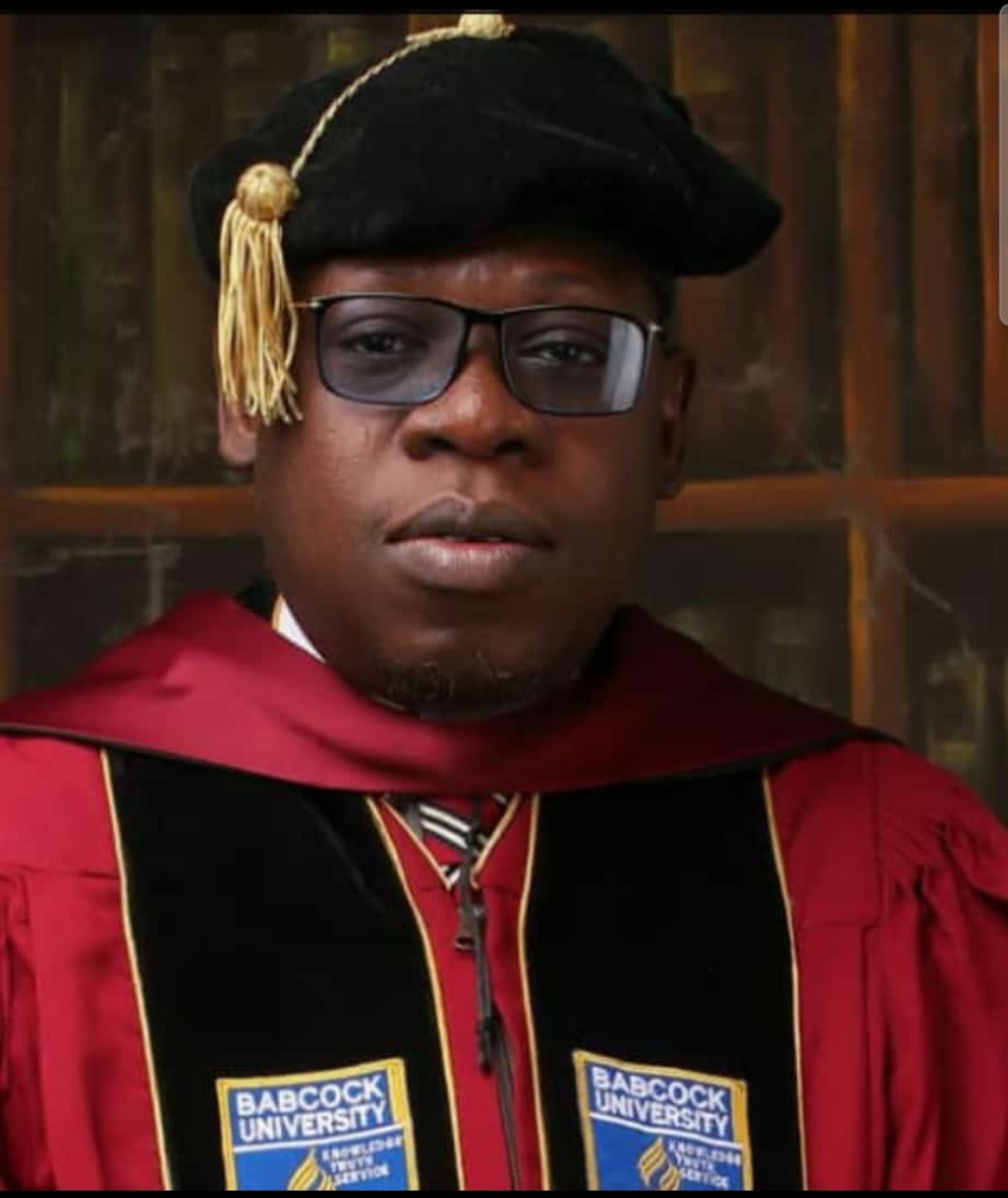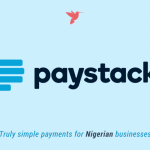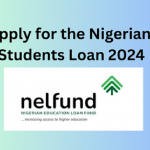Education
ASR Africa Gives N1bn Grant to University of Benin

By Adedapo Adesanya
The Abdul Samad Rabiu Africa Initiative (ASR Africa) has awarded a N1 billion infrastructure grant to the University of Benin (UNIBEN) as part of its 2021 Tertiary Education Grants Scheme.
This was revealed during the grant presentation by ASR Africa management to the Vice-Chancellor and council members of the University of Benin on Wednesday.
With this grant, the University of Benin becomes the fifth Nigerian university to receive the gesture from the ASR Africa Tertiary Education Grants Scheme, which is funded by the ASR Africa Fund for Social Development and Renewal, which has a yearly budget of $100 million.
The University of Maiduguri, University of Ilorin, University of Ibadan, and Ahmadu Bello University, Zaria are among the previous 2021 grant recipients.
During the presentation, Mr Ubon Udoh, Managing Director of ASR Africa, praised the university administration for their dedication to ensuring the highest tertiary education standards at the University of Benin.
He further said UNIBEN was chosen for the ASR Africa Tertiary Education Grant based on a number of criteria, including ranking, student population, gender inclusivity and others.
The ASR Africa Initiative, which is the brainchild of industrialist and philanthropist, Mr Abdul Samad Rabiu, was set up with an annual pledge of $100 million dedicated to health, education and social development issues within the African continent.
Out of this, Nigeria will benefit $50 million yearly and the rest of Africa, $50 million, in what is the largest private philanthropic giving of its kind by an individual in Africa.
Education
NELFUND Disburses N161.97bn to 864,798 Students in 500 Days

By Adedapo Adesanya
The Nigerian Education Loan Fund (NELFUND) has disbursed N161.97 billion to 864,798 students nationwide since the inauguration of its student loan portal on July 17, 2024, as part of efforts to expand access to tertiary education.
The Managing Director of NELFUND, Mr Akintunde Sawyerr, while briefing journalists on the progress, impact and challenges of the scheme under the President Bola Tinubu’s Renewed Hope Agenda, said it was established to ensure that no Nigerian student was denied education because of financial constraints.
According to him, the fund has so far received 1,361,011 loan applications from students across the country.
He explained that out of the N161.97 billion disbursed, N89.94 billion was paid directly to 263 tertiary institutions to cover tuition and institutional charges, while N72.03 billion was paid to students as upkeep allowances.
“As at today, 1,361,011 applications have been received, 864,798 students have so far benefited from the loan scheme, and total disbursement stands at N161.97 billion.
“These includes N89.94 billion paid directly to 263 tertiary institutions for tuition and institutional fees, and N72.03 billion paid directly to students as upkeep allowances,” he said.
He noted that the figures represented tangible impact on students and families, describing them as evidence of barriers being removed and opportunities being created.
The NELFUND boss said the agency, had over the last year, embarked on extensive sensitisation across tertiary institutions to improve awareness and access to the scheme.
He added that the focus would now expand to parents, guardians, traditional rulers and faith-based institutions.
He said this new approach was to deepen public understanding and trust in the scheme.
“Over the last year, NELFUND has undertaken extensive sensitisation and engagement across tertiary institutions nationwide.
“We have worked directly with students, school authorities, and stakeholders to drive awareness, understanding, and access to the scheme.
“However, as we move into this new phase, we recognise that deepening impact requires broader engagement.
“So this year, our focus will expand to another very important group within the NELFUND ecosystem,” he said.
On upkeep payments, the managing director disclosed that a reconciliation exercise carried out after the 2024/2025 academic session revealed that 11,685 students had outstanding upkeep payments amounting to N927.98 million.
He clarified that the outstanding payments were not due to withheld funds or policy failure, but resulted from technical and operational issues.
He said such issues include network downtime, failed transactions and unvalidated bank account details.
He also said that the NELFUND management had approved a one-time reconciliation process to resolve the cases, including direct engagement with affected students.
He further said that a grace period for updating bank details, multi-layer validation and prompt payment upon verification had also been approved.
Responding to questions on sustainability, Mr Sawyerr said that the amended student loan law removal of guarantor requirements, inclusion of upkeep allowances and the ability to raise and invest funds were key elements supporting long-term sustainability.
He added that NELFUND was also exploring partnerships with philanthropists, corporate organisations and government agencies, citing a N20 billion collaboration with the Ministry of Education on Technical and Vocational Education and Training (TVET) as an example.
Also speaking, the Executive Director of Operations, NELFUND, Mr Mustapha Iyal, said that outstanding upkeep represented about 11,000 out of more than 400,000 beneficiaries in the 2024/2025 session.
Mr Iyal said NELFUND had contacted institutions to validate student data, noting that many of the issues arose from incorrect information supplied by applicants.
According to him, feedback has been received from over 100 institutions, and payment of the outstanding upkeep allowances is expected to commence shortly.
He also disclosed that applications for the 2025/2026 academic session began in November, 2025, with over 200 institutions submitting updated data.
He said about 280,000 applications had been received from those institutions, out of which loans had already been disbursed to more than 150,000 students.
He added that upkeep payments for the new session would begin in January, explaining that upkeep allowances were tied to active academic sessions and required fresh applications each session.
On loan repayment, Mr Iyal said repayment had already commenced, with some beneficiaries who had graduated and secured employment beginning to repay their loans.
Education
Edo Postpones School Resumption as Tension Rises

By Adedapo Adesanya
The Edo State Government has postponed the resumption date of all public and private schools in Edo Central Senatorial District as tension rose in the state.
The senatorial district, which is the region of Governor Monday Okpebholo, has witnessed a couple of security crises recently, including the arrest of over 50 students.
In a statement on Monday, the state Commissioner for Education, Mr Paddy Iyamu, said the postponement was until further notice, to enable the state government address prevailing exigencies and improve the welfare and safety of pupils.
“The new date of resumption will be duly communicated to the public in due course,” the Commissioner said.
“Parents, guardians, and all education stakeholders within Edo Central Senatorial District are kindly requested to take note of this development and comply accordingly.”
The development was after last Saturday’s peaceful protest over insecurity and kidnapping in Ekpoma, Esan West Local Government Area, which turned violent.
According to reports, certain actors hijacked the protest, blocked a major highway, disrupted commercial activities, and attacked traders at the livestock market, where goats were killed and cows beaten, scenes captured in viral videos.
The attackers also invaded and vandalised the palace of the Onojie of Ekpoma, Mr Zaiki Anthony Abumere II.
On Monday, the governor, accompanied by the state’s Commissioner of Police, Monday Agbonika, and others, visited the palace to assess the level of destruction.
Several vehicles, canopies, chairs, doors, and windows were damaged, while goods belonging to the monarch’s wife were also destroyed.
Describing the invasion as criminal and unacceptable, Mr Okpebholo said protests must never be used as a cover for lawlessness.
The governor disclosed that a security meeting had been held earlier with a strong focus on Edo Central, particularly the Ekpoma axis, noting that strategic, technology-driven security operations had been deployed.
On social media, a lot of Nigerians have condemned the actions of the government, saying innocent people have been arrested.
Education
Nigeria’s Top 500 Academics: Breaking Barriers, Timi Olubiyi Gains Academic Spotlight

By Timi Olubiyi, PhD
In today’s world, nations no longer compete only with natural resources or population size; they compete with ideas, knowledge, and innovation. In the last few days, I have received many messages following my inclusion as number 102 among the Top 500 academics in Nigeria, according to SciVal’s scholarly output ranking for 2023–2026. A stunning display of scholarly excellence that has captured attention both within and beyond Nigeria.
It is important to mention thatSciVal is a respected global research analytics platform developed by Elsevier, one of the world’s leading academic publishing and information companies. It is widely used by universities, governments, and research institutions across more than 230 countries to assess research performance and track global influence.
While such recognition is noteworthy, it should not be viewed merely through the lens of individual achievement. Rather, it presents an important opportunity to reflect on what this ranking truly means for Nigeria’s development, the future of its universities, and the country’s place in the global knowledge economy, which is the central motivation for this discussion.
Nigeria is home to over 270 public and private universities, with an estimated 75,000 to 80,000 lecturers, if not more. From this vast academic community, only 500 scholars were identified by SciVal as the most productive and globally visible researchers. Recognition on SciVal therefore, signals that a scholar’s work is not only prolific but also trusted, visible, and impactful internationally, making the ranking a credible benchmark of global academic relevance rather than a local or ceremonial listing. In essence, the ranking is not about popularity or titles; it is about impact.
The importance of the Top 500 list goes far beyond academic pride. These scholars contribute to shaping public policy, influencing business practices, supporting innovation, and addressing real societal challenges. Nations that achieve sustained economic and social progress invest deliberately in research because effective policies and successful enterprises are built on strong, evidence-based ideas.
SciVal evaluates research performance across more than 230 countries and over 20,000 institutions worldwide, tracking publications, citations, collaborations, and research influence through internationally recognised databases such as Scopus. Simply put, it measures whose work is shaping conversations globally. For Nigeria to have 500 scholars represented on this platform is significant. It signals to the world that Nigerian academics are not merely participants in global discourse, but active contributors to it.
Being ranked 102nd on this list reflects years of consistent research output, collaboration, and engagement across key areas such as entrepreneurship, small and medium-sized enterprises (SMEs), sustainability, innovation, leadership, and business continuity. These areas are far from abstract academic interests; they are central to Nigeria’s economic survival and growth. SMEs, in particular, form the backbone of the Nigerian economy, yet many struggle due to weak structures, limited access to finance, and inadequate strategic planning. Research that addresses these challenges has direct implications for employment, livelihoods, and national stability.
One of the strongest lessons from the Top 500 ranking is the importance of global collaboration. Collaboration with scholars across different regions of the world enriches research quality and ensures that Nigerian realities are represented within global knowledge conversations. International partnerships improve visibility, strengthen credibility, and ensure that local perspectives are not excluded from global solutions. Each Nigerian scholar engaged in meaningful global collaboration strengthens the country’s intellectual presence.
Global relevance increasingly matters in today’s research ecosystem. Rankings influence who attracts funding, who participates in policy discussions, and who helps shape international best practices. Scholars whose work appears in well-indexed journals are trusted because their research meets global standards. That trust opens doors to partnerships, joint projects, and policy engagement. When Nigerian scholars are globally visible, the nation benefits collectively. Yet academic impact should not be confined to journals alone. Research achieves its highest value when it speaks to society.
Public engagement through opinion writing, policy dialogue, and accessible communication ensures that complex ideas reach everyday readers and decision-makers. When research informs public debate, it becomes a powerful tool for national progress. Some scholarly insights have also reached international audiences through syndicated platforms, allowing global readers to engage with Nigerian perspectives on business, sustainability, and economic development.
What also stands out about this ranking is consistency. Inclusion over multiple years is not accidental. It reflects discipline, intellectual curiosity, and sustained effort. For Nigeria, such consistency among its leading scholars is reassuring. It demonstrates that despite the challenges facing the education sector, academic excellence remains achievable.
The broader message of the Top 500 ranking is clear: Nigeria possesses significant intellectual capital, and it must be taken seriously. Development in the modern world is no longer driven solely by physical infrastructure or natural resources. It is driven by ideas by research that informs policy, strengthens institutions, and fuels innovation. Countries that invest in knowledge thrive; those that neglect it fall behind. As a nation, there is a need to do more to support scholars through better funding, stronger research environments, and policies that reward excellence and collaboration. Equally important is encouraging academics to engage with society, industry, and government. Research should not exist in isolation; it should be integrated into national planning and development strategies.
Recognition on platforms such as SciVal should therefore be seen not as a personal milestone, but as part of a broader Nigerian story, one of resilience, intellect, and growing global relevance. Across the country, many scholars are doing impactful work, often quietly and without recognition. This ranking, therefore, shines a light on our painstaking research contributions, which can shape Nigeria’s future.
The Top 500 academics represent a foundation upon which sustainable development can be built, and considering them for consultations and advice is not out of place. Because they are selected across all academic disciplines. If this intellectual resource is recognised, supported, and effectively utilised, Nigeria’s voice in the global knowledge economy will continue to grow stronger. Ultimately, rankings and recognition only matter if they lead to meaningful action.
The real question before Nigeria is not how many scholars appear on global lists, but how effectively the nation listens to, supports, and engages its best minds. Across universities and research centres are scholars generating ideas capable of shaping policy, strengthening institutions, and driving innovation, yet too often these voices remain at the margins of national decision-making.
If Nigeria is serious about sustainable development, it must move beyond celebrating excellence to actively integrating research into governance, industry, and public discourse. The future will belong to nations that recognise knowledge as a strategic asset and deliberately harness the insights of their finest thinkers. Engaging the best among us is no longer optional; it is essential to building a resilient, competitive, and forward-looking Nigeria.Good luck!
How may you obtain advice or further information on the article?
Dr Timi Olubiyi is an expert in Entrepreneurship and Business Management, holding a PhD in Business Administration from Babcock University in Nigeria. He is a prolific investment coach, author, columnist, and seasoned scholar. Additionally, he is a Chartered Member of the Chartered Institute for Securities and Investment (CISI) and a registered capital market operator with the Securities and Exchange Commission (SEC). He can be reached through his Twitter handle @drtimiolubiyi and via email at [email protected] for any questions, feedback, or comments.
The opinions expressed in this article are solely those of the author, Dr Timi Olubiyi, and do not necessarily reflect the views of others.
-

 Feature/OPED6 years ago
Feature/OPED6 years agoDavos was Different this year
-
Travel/Tourism9 years ago
Lagos Seals Western Lodge Hotel In Ikorodu
-

 Showbiz3 years ago
Showbiz3 years agoEstranged Lover Releases Videos of Empress Njamah Bathing
-

 Banking8 years ago
Banking8 years agoSort Codes of GTBank Branches in Nigeria
-

 Economy3 years ago
Economy3 years agoSubsidy Removal: CNG at N130 Per Litre Cheaper Than Petrol—IPMAN
-

 Banking3 years ago
Banking3 years agoFirst Bank Announces Planned Downtime
-

 Banking3 years ago
Banking3 years agoSort Codes of UBA Branches in Nigeria
-

 Sports3 years ago
Sports3 years agoHighest Paid Nigerian Footballer – How Much Do Nigerian Footballers Earn













